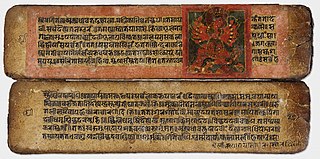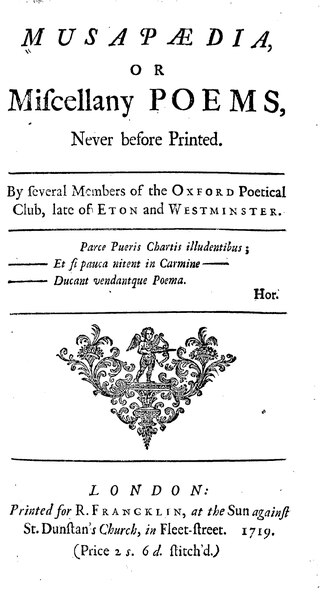A cultural movement is a change in the way a number of different disciplines approach their work. This embodies all art forms, the sciences, and philosophies. Historically, different nations or regions of the world have gone through their own independent sequence of movements in culture, but as world communications have accelerated this geographical distinction has become less distinct. When cultural movements go through revolutions from one to the next, genres tend to get attacked and mixed up, and often new genres are generated and old ones fade.: These changes are often reactions against the prior cultural form, which typically has grown stale and repetitive. An obsession emerges among the mainstream with the new movement, and the old one falls into neglect – sometimes it dies out entirely, but often it chugs along favored in a few disciplines and occasionally making reappearances.
Genre is any style or form of communication in any mode with socially-agreed-upon conventions developed over time. In popular usage, it normally describes a category of literature, music, or other forms of art or entertainment, based on some set of stylistic criteria. Often, works fit into multiple genres by way of borrowing and recombining these conventions. Stand-alone texts, works, or pieces of communication may have individual styles, but genres are amalgams of these texts based on agreed-upon or socially inferred conventions. Some genres may have rigid, strictly adhered-to guidelines, while others may show great flexibility.

Literary theory is the systematic study of the nature of literature and of the methods for literary analysis. Since the 19th century, literary scholarship includes literary theory and considerations of intellectual history, moral philosophy, social philosophy, and interdisciplinary themes relevant to how people interpret meaning. In the humanities in modern academia, the latter style of literary scholarship is an offshoot of post-structuralism. Consequently, the word theory became an umbrella term for scholarly approaches to reading texts, some of which are informed by strands of semiotics, cultural studies, philosophy of language, and continental philosophy.

A genre of arts criticism, literary criticism or literary studies is the study, evaluation, and interpretation of literature. Modern literary criticism is often influenced by literary theory, which is the philosophical analysis of literature's goals and methods. Although the two activities are closely related, literary critics are not always, and have not always been, theorists.

Tragedy is a genre of drama based on human suffering and, mainly, the terrible or sorrowful events that befall a main character. Traditionally, the intention of tragedy is to invoke an accompanying catharsis, or a "pain [that] awakens pleasure,” for the audience. While many cultures have developed forms that provoke this paradoxical response, the term tragedy often refers to a specific tradition of drama that has played a unique and important role historically in the self-definition of Western civilization. That tradition has been multiple and discontinuous, yet the term has often been used to invoke a powerful effect of cultural identity and historical continuity—"the Greeks and the Elizabethans, in one cultural form; Hellenes and Christians, in a common activity," as Raymond Williams puts it.
An oratorio is a musical composition with dramatic or narrative text for choir, soloists and orchestra or other ensemble.

Classicism, in the arts, refers generally to a high regard for a classical period, classical antiquity in the Western tradition, as setting standards for taste which the classicists seek to emulate. In its purest form, classicism is an aesthetic attitude dependent on principles based in the culture, art and literature of ancient Greece and Rome, with the emphasis on form, simplicity, proportion, clarity of structure, perfection, restrained emotion, as well as explicit appeal to the intellect. The art of classicism typically seeks to be formal and restrained: of the Discobolus Sir Kenneth Clark observed, "if we object to his restraint and compression we are simply objecting to the classicism of classic art. A violent emphasis or a sudden acceleration of rhythmic movement would have destroyed those qualities of balance and completeness through which it retained until the present century its position of authority in the restricted repertoire of visual images." Classicism, as Clark noted, implies a canon of widely accepted ideal forms, whether in the Western canon that he was examining in The Nude (1956).
In literary criticism, close reading is the careful, sustained interpretation of a brief passage of a text. A close reading emphasizes the single and the particular over the general, via close attention to individual words, the syntax, the order in which the sentences unfold ideas, as well as formal structures.

A literary genre is a category of literature. Genres may be determined by literary technique, tone, content, or length. They generally move from more abstract, encompassing classes, which are then further sub-divided into more concrete distinctions. The distinctions between genres and categories are flexible and loosely defined, and even the rules designating genres change over time and are fairly unstable.

Sanskrit literature broadly comprises all literature in the Sanskrit language. This includes texts composed in the earliest attested descendant of the Proto-Indo-Aryan language known as Vedic Sanskrit, texts in Classical Sanskrit as well as some mixed and non-standard forms of Sanskrit. Literature in the older language begins with the composition of the Ṛg·veda between about 1500 and 1000 BCE, followed by other Vedic works right up to the time of the grammarian Pāṇini around 6th or 4th century BCE.
In English literature, the term comedy of manners describes a genre of realistic, satirical comedy of the Restoration period (1660–1710) that questions and comments upon the manners and social conventions of a greatly sophisticated, artificial society. The satire of fashion, manners, and outlook on life of the social classes, is realised with stock characters, such as the braggart soldier of Ancient Greek comedy, and the fop and the rake of English Restoration comedy. The clever plot of a comedy of manners is secondary to the social commentary thematically presented through the witty dialogue of the characters, e.g. The Importance of Being Earnest (1895), by Oscar Wilde, which satirises the sexual hypocrisies of Victorian morality.
Jonathan Culler is an American literary critic. He was Class of 1916 Professor of English and Comparative Literature at Cornell University. His published works are in the fields of structuralism, literary theory and literary criticism.

As a literary genre, the chivalric romance is a type of prose and verse narrative that was popular in the noble courts of high medieval and early modern Europe. They were fantastic stories about marvel-filled adventures, often of a chivalric knight-errant portrayed as having heroic qualities, who goes on a quest. It developed further from the epics as time went on; in particular, "the emphasis on love and courtly manners distinguishes it from the chanson de geste and other kinds of epic, in which masculine military heroism predominates."

17th-century French literature was written throughout the Grand Siècle of France, spanning the reigns of Henry IV of France, the Regency of Marie de' Medici, Louis XIII of France, the Regency of Anne of Austria and the reign of Louis XIV of France. The literature of this period is often equated with the Classicism of Louis XIV's long reign, during which France led Europe in political and cultural development; its authors expounded the classical ideals of order, clarity, proportion and good taste. In reality, 17th-century French literature encompasses far more than just the classicist masterpieces of Jean Racine and Madame de La Fayette.
An overview of the theatre of France.

Experimental literature is a genre of literature that is generally "difficult to define with any sort of precision." It experiments with the conventions of literature, including boundaries of genres and styles; for example, it can be written in the form of prose narratives or poetry, but the text may be set on the page in differing configurations than that of normal prose paragraphs or in the classical stanza form of verse. It may also incorporate art or photography. Furthermore, while experimental literature was traditionally handwritten, the digital age has seen an exponential use of writing experimental works with word processors.
A parody is a creative work designed to imitate, comment on, and/or mock its subject by means of satirical or ironic imitation. Often its subject is an original work or some aspect of it, but a parody can also be about a real-life person, event, or movement. Literary scholar Professor Simon Dentith defines parody as "any cultural practice which provides a relatively polemical allusive imitation of another cultural production or practice". The literary theorist Linda Hutcheon said "parody ... is imitation, not always at the expense of the parodied text." Parody may be found in art or culture, including literature, music, theater, television and film, animation, and gaming. Some parody is practiced in theater.

Fantasy is a genre of speculative fiction involving magical elements, typically set in a fantasy world and usually inspired by mythology or folklore. The term "fantasy" can also be used to describe a "work of this genre", usually literary.

A novel is an extended work of narrative fiction usually written in prose and published as a book. The English word to describe such a work derives from the Italian: novella for "new", "news", or "short story ", itself from the Latin: novella, a singular noun use of the neuter plural of novellus, diminutive of novus, meaning "new". According to Margaret Doody, the novel has "a continuous and comprehensive history of about two thousand years", with its origins in the Ancient Greek and Roman novel, Medieval Chivalric romance, and in the tradition of the Italian Renaissance novella. The ancient romance form was revived by Romanticism, in the historical romances of Walter Scott and the Gothic novel. Some novelists, including Nathaniel Hawthorne, Herman Melville, Ann Radcliffe, and John Cowper Powys, preferred the term "romance". M. H. Abrams and Walter Scott have argued that a novel is a fiction narrative that displays a realistic depiction of the state of a society, while the romance encompasses any fictitious narrative that emphasizes marvellous or uncommon incidents. Works of fiction that include marvellous or uncommon incidents are also novels, including Mary Shelley's Frankenstein, J. R. R. Tolkien's The Lord of the Rings, and Harper Lee's To Kill a Mockingbird. Such "romances" should not be confused with the genre fiction romance novel, which focuses on romantic love.

A miscellany is a collection of various pieces of writing by different authors. Meaning a mixture, medley, or assortment, a miscellany can include pieces on many subjects and in a variety of different forms. In contrast to anthologies, whose aim is to give a selective and canonical view of literature, miscellanies were produced for the entertainment of a contemporary audience and so instead emphasise collectiveness and popularity. Laura Mandell and Rita Raley state:
This last distinction is quite often visible in the basic categorical differences between anthologies on the one hand, and all other types of collections on the other, for it is in the one that we read poems of excellence, the "best of English poetry," and it is in the other that we read poems of interest. Out of the differences between a principle of selection and a principle of collection, then, comes a difference in aesthetic value, which is precisely what is at issue in the debates over the "proper" material for inclusion into the canon.






